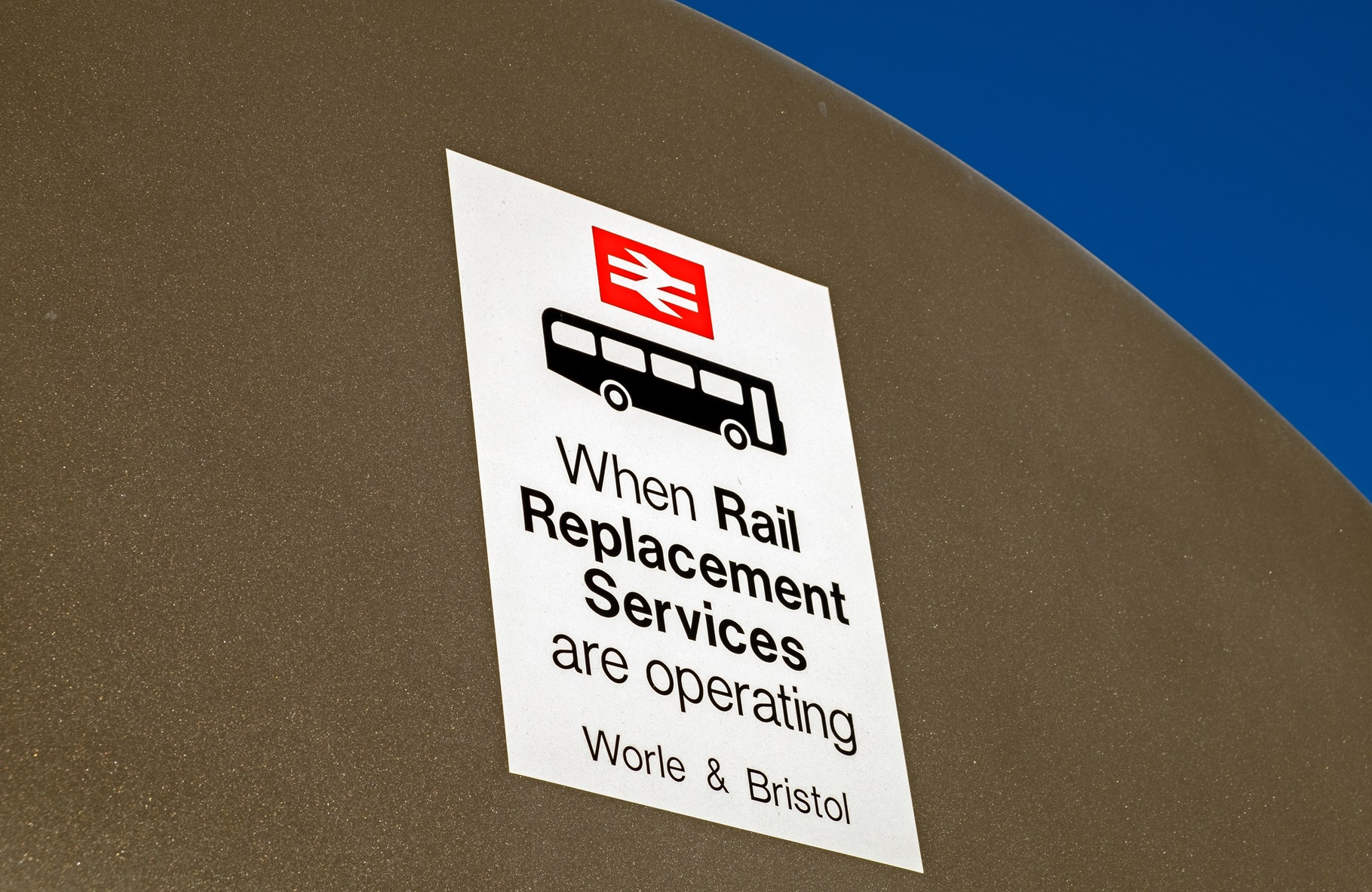Vehicles – including coaches – used on rail replacement work that meets the definition of a local service will be required to satisfy the Public Service Vehicles (Accessible Information) Regulations (AIR) unless the service concerned meets the long-distance exemption within that legislation, transport legal experts have agreed.
A local service is defined by the Transport Act 1985 as one with stops that are less than 15 miles apart measured in a straight line. Small buses that carry less than 17 passengers are exempt from AIR.
In what will potentially pose a problem for coaches and buses that are not also used on local services at other times, AIR compliance calls for audio and visual announcements that detail items including the service name, number or other label; direction or ultimate destination; and each stopping place.
Application dates of AIR to in-scope services are staged:
- In relation to vehicles first used to provide local services on or after 1 October 2019, the Regulations apply from 1 October 2024
- In relation to those first used to provide local service on or after 1 October 2014 and on or before 30 September 2019, the Regulations apply from 1 October 2025
- In relation to those first used to provide local services on or after 1 January 1973 and on or before 30 September 2014, the Regulations apply from 1 October 2026.
While Backhouse Jones and JMW Solicitors say that there is no doubt AIR compliance will be required where a rail replacement duty qualifies as a local service, lawyers at both highlight that understanding the exemption for long-distance services is imperative.
That is in play where a service has a mix of local and non-local parts. It is satisfied if more than half of a route compromises distances of 15 miles or more between stops, even if the remainder has stops that are closer together, when measured via the method outlined in section 4(5) of AIR.
Backhouse Jones Legal Director James Backhouse further advises that proper calculation around the long-distance exemption is imperative for those intending to take advantage of it.
“It may be possible to organise a lot of rail replacement that is out of scope [of AIR] if separate vehicles serve different stations,” he observes.

JMW Solicitors Partner – Co-Head of Commercial Road Transport Laura Hadzik adds that how the Accessible Information Regulations will apply to unplanned rail replacement is unclear thus far in respect of the ‘except in an emergency’ clause within the definition of a local service in the Transport Act 1985.
“The references to ‘except in an emergency’ in the various definitions are unlikely to apply to pre-planned rail replacement services, but it is yet to be seen how they may be interpreted in the context of unplanned/last minute rail replacement,” she continues.
Mr Backhouse agrees that whether emergency rail replacement services will need to comply with AIR lacks absolute clarity. However, he suggests that as such duties are in scope of PSVAR, so they will be for AIR.
“Against that, if a train has broken down then a solution is required quickly,” he continues. “There does not appear to be any way of creating an exemption for emergency rail replacement, other than to argue it constitutes a one-off trip and not a local service.”
Both Mr Backhouse and Ms Hadzik note that where an operator is unclear whether a rail replacement service is in scope of AIR, they should take advice. Ms Hadzik adds that the consequences of a breach of regulations made under the Equality Act are “potentially significant.”
She continues: “I would urge operators to take advice on their particular scenario if they are seeking to rely on an exemption from the requirements, as it for them to demonstrate that they can claim the benefit of that exemption.”



























